You’re about to see a side of history that your eyes have probably never seen before.
B-17 bombardier heading toward Germany, 1940’s

Troops of the Eight-Nation Alliance in 1900. Left to right: Britain, United States, Australia,India, Germany, France, Russia, Italy, Japan
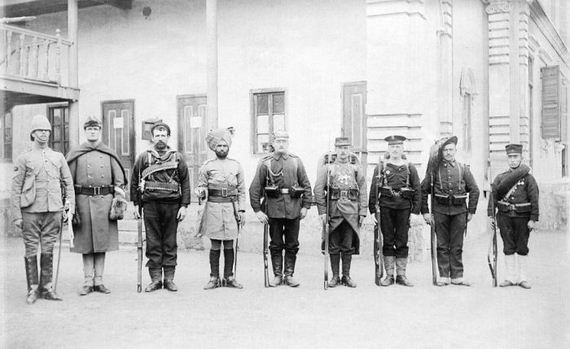
A Group of Samurai in front of Egypt’s Sphinx, 1864
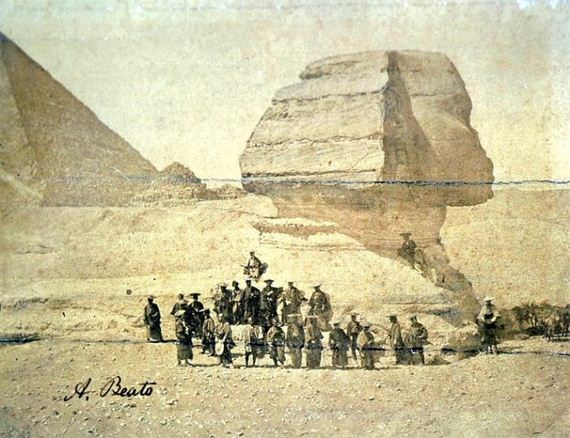
The final moments of a Japanese Dive Bomber, 1945
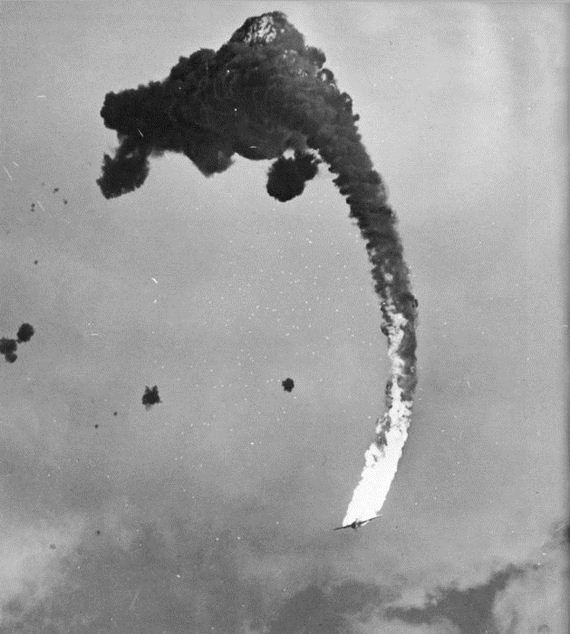
A police officer issuing a woman a ticket for wearing a bikini on a beach at Rimini, Italy, in 1957
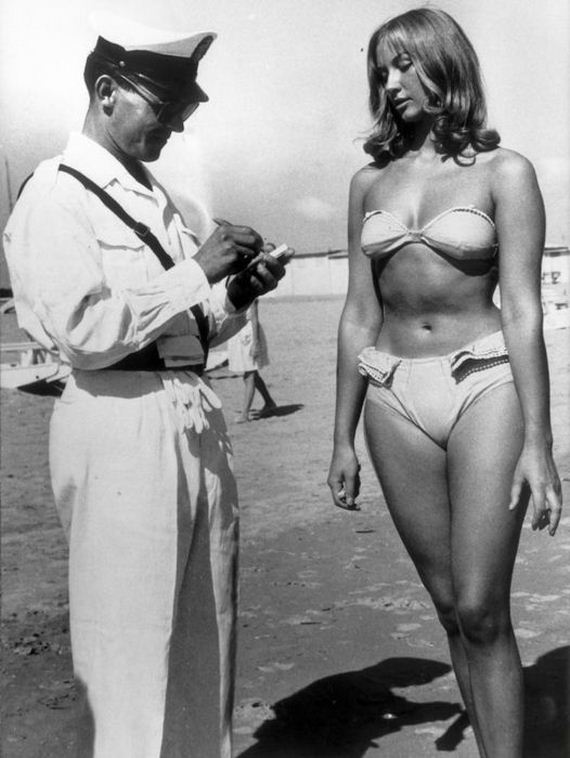
English archaeologist Howard Carter entered the sealed burial chamber of King Tutankhamen 1923. Curse of the Tutankhamun? The first of the “mysterious” deaths was that of Lord Carnarvon. He had been bitten by a mosquito, and later slashed the bite accidentally while shaving. It became infected and blood poisoning resulted. … Skeptics have pointed out that many others who visited the tomb or helped to discover it lived long and healthy lives. A study showed that of the 58 people who were present when the tomb and sarcophagus were opened, only eight died within a dozen years. All the others were still alive, including Howard Carter, who died of lymphoma in 1939 at the age of 64. The last survivor, American archaeologist J.O. Kinnaman, died in 1961, a full 39 years after the event.
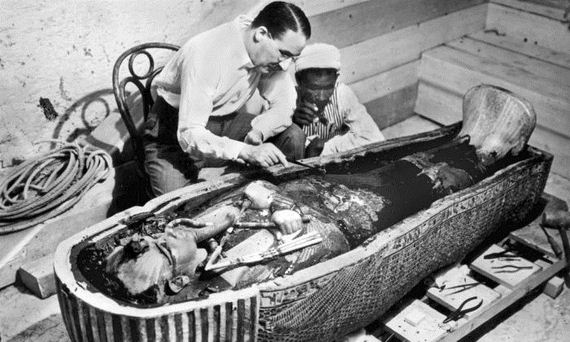
General Dwight D. Eisenhower addresses American paratroopers prior to D-Day. Soldiers, Sailors and Airmen of the Allied Expeditionary Forces: You are about to embark upon the Great Crusade, toward which we have striven these many months. The eyes of the world are upon you. The hopes and prayers of liberty-loving people everywhere march with you. In company with our brave Allies and brothers-in-arms on other Fronts you will bring about the destruction of the German war machine, the elimination of Nazi tyranny over oppressed peoples of Europe, and security for ourselves in a free world. Your task will not be an easy one. Your enemy is well trained, well equipped and battle-hardened. He will fight savagely. But this is the year 1944. Much has happened since the Nazi triumphs of 1940-41. The United Nations have inflicted upon the Germans great defeats, in open battle, man-to-man. Our air offensive has seriously reduced their strength in the air and their capacity to wage war on the ground. Our Home Fronts have given us an overwhelming superiority in weapons and munitions of war, and placed at our disposal great reserves of trained fighting men. The tide has turned. The free men of the world are marching together to victory. I have full confidence in your courage, devotion to duty, and skill in battle. We will accept nothing less than full victory. Good Luck! And let us all beseech the blessing of Almighty God upon this great and noble undertaking
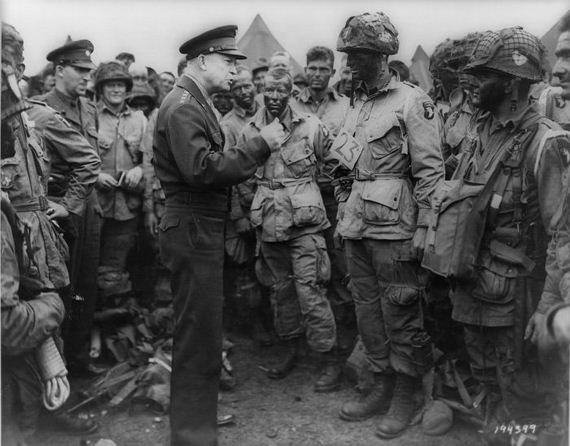
Kon-Tiki, a raft built by Norwegian explorer Thor Heyerdahl in an attempt to prove that pre-Columbian South Americans could reach Polynesia. He succeeded 1947
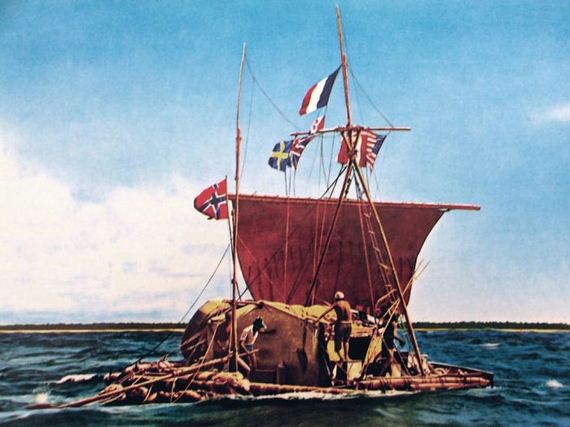
Two black students are harassed by classmates on their way to school – Little Rock, Arkansas 1957

12 year old Lo Manh Hung who was probably the youngest photo journalist in South Vietnam, February 18, 1968

Reagan meets with the Afghan mujahideen, 1983
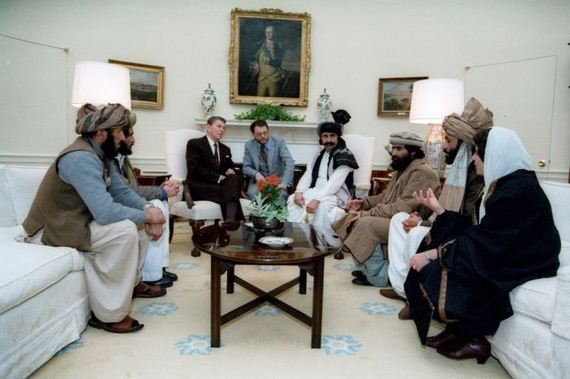
Bobby Fisher playing 50 opponents simultaneously. He won 47, lost 1 and drew 2. 1964
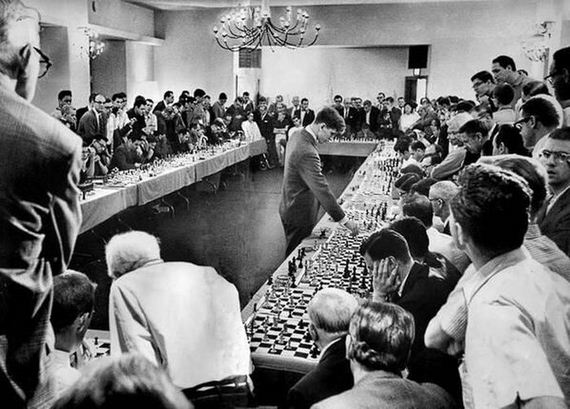
A Mongolian woman sentenced to die by starvation reaches out from the porthole of a crate in which she is imprisoned, c. July 1913. This photo was taken in July 1913 by French photographer Albert Kahn. Albert Kahn was a millionaire banker who pioneered color photography using the process invented by the Lumière brothers. During his trip through exotic countries, Albert Kahn visited Mongolia where he took this picture of a woman who was condemned to slow and painful starvation by being deposited in a remote desert inside a wooden crate that was to become her tomb. Initially the bowls on the ground had water in it, though was not intentionally refilled, and the person inside was allowed to beg for food which often just prolonged their suffering as they generally didn’t get enough food for the passersby. The photographer had to leave her in the box because it would be against a prime directive of anthropologists to intervene in another cultures law and order system.
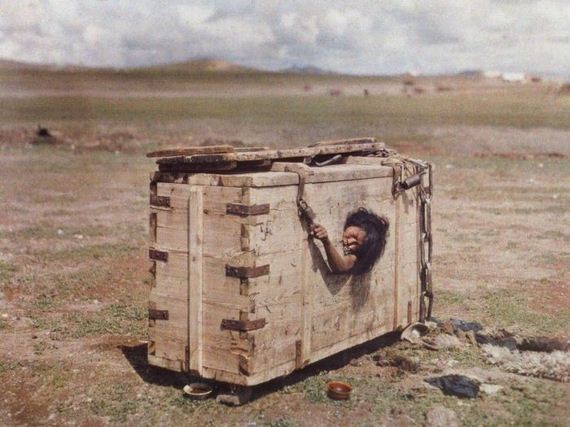
Troops of the US 89th Infantry Division trying to cross the River Rhine under heavy fire. Oberwesel, Germany. March 26 1945
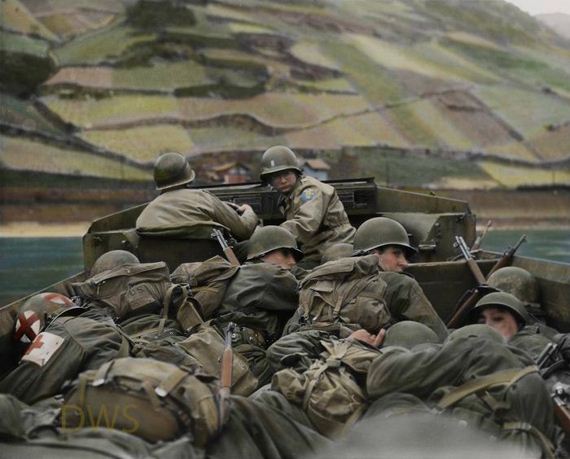
Field Marshal Bernard Montgomery signs the surrender of German forces in the Netherlands, in northwest Germany and Denmark – 4th May 1945. After lunch, Field Marshal Montgomery called the Germans back for further consultation, and there he delivered his ultimatum … He told the Germans: “You must understand three things: Firstly, you must surrender to me unconditionally all the German forces in Holland, Friesen and the Frisian Islands and Helgoland and all other islands in Schleswig-Holstein and in Denmark. Secondly, when you have done that, I am prepared to discuss with you the implications of your surrender: how we will dispose of those surrendered troops, how we will occupy the surrendered territory, how we will deal with the civilians, and so forth. And my third point: If you do not agree to Point 1, the surrender, then I will go on with the war and I will be delighted to do so.” Monty added, as an after-thought, “All your soldiers and civilians may be killed.”
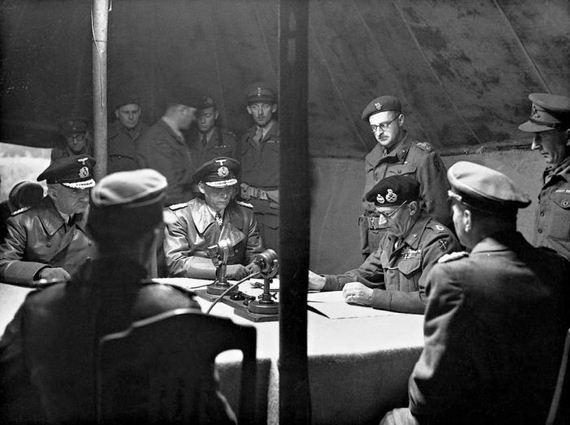
Marie Curie, the first woman to receive a Nobel Prize, in her laboratory in Paris, 1912
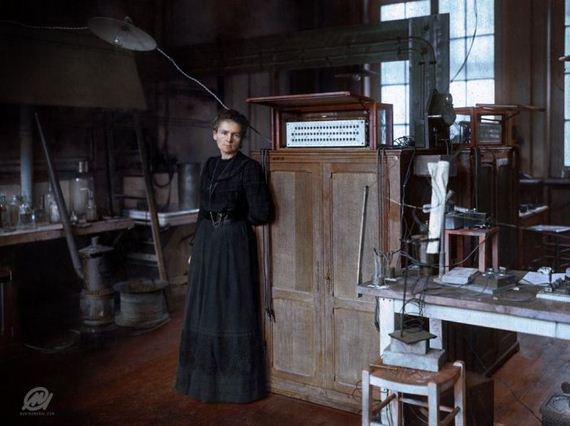
 Barnorama All Fun In The Barn
Barnorama All Fun In The Barn